Art is the immediate manifestation of the human creative quest which, on its part, constitutes the aesthetic expression of spiritual thinking-the response of the beautiful to man’s intrinsic affinity towards the all-pervading energy of bliss whose subtle rays illuminate the universe in its every corner. It is more than a mere chance that the arts, at all times and in all parts of the world, emerged in close association with their surrounding streams of faith. Whichever the religious tradition-be it one of the great world religions or the simple, naturalistic belief of an aboriginal tribe, articulations of artistic character, of one kind or another, are certainly part of the ritual activity. In India, religion has significantly inspired a cultural tradition which today counts among the crest jewels of the millennia-old heritage of world culture. India’s music, dance, fine arts and dramatic arts are well-known and highly appreciated far beyond their native land. These gems of human creative striving took birth in the Hindu temples of ancient India, where they became the concrete revelations of the spiritual quest, the form-bearing embodiments of an abstract idea. Supported by the concepts of Indian philosophy, these arts developed into symbols of aesthetic perfection whose silent beauty provides the most eloquent evidence for the profundity of man’s ever-persistent longing for the diving. The present compilation presents a number of independent articles held together by the thematic string of art as part of ritual worship and spiritual striving in traditions of devotional religion in India. Emphasis is laid on music and fine arts in the Vaisnava temples of Vraja, with recurring reference to the art of Sanjhi wich counts among the unique and nowadays very rare treasures of the Indian cultural heritage. Sanjhi is a form of visual art rooted in the folk tradition. Here the mergence of the current of folk spirituality into the ocean of Vaisnava devotionalism resulted in one of the most delightful expressions of artistic fullness, accomplishing the confluence of fine art, poetry and music in a manner so smooth and attractive as to make obvious the extraordinary role aesthetic beauty plays in the attainment of the spiritual quest. The book, whose authors are actively involved in both the religious tradition and the practice of traditional art, is essentially inspired by the overwhelming presence of the divinity revealed through manifestations of beauty in the ancient arts of India. Those who ever had the opportunity to partake of the sublime experience of spiritual bliss evoked by an aesthetic satisfaction will know that beauty is indeed the core intent of all joy. To share this experience with the reader is one of the main objects of the present volume, along with the plea for the protection of man’s endangered cultural riches lest some of these most excellent arts slip into oblivion to be lost forever.
Music and Fine Arts in the Devotional Traditions of India: Worship Through Beauty
$45.00
$50.00
In stock
Free & Quick Delivery Worldwide
All orders amounting to US$ 50 or more qualify for Free Delivery Worldwide. For orders less than US$ 50, we offer Standard Delivery at $14 per book.
ABOUT THE AUTHOR Saurabh Goswami
Saurabh Goswami belongs to the family of hereditary priests of the ancient temple of Radhramana at Vrindaban. Trained in fine arts since his early childhood, he is an accomplished artist of traditional painting in Vraja style who has won several national Awards for his miniatures. Saurabh goswami is also one of the last remaining representatives of the traditional art of sanjhi, which he practices at the temple of Radharamana. Having obtained a National diploma in fine arts from the Government Insitute of fine Arts, Gwalior, Saurabh Goswami has presented his works in various exhibitions all over India. through his workshops he invests his efforts into the dissemination of the art forms of sanjhi and miniature painting. Saurabhi Goswami is founder-member and one of the main initiators of Vraja Kala Sanskriti Sansthana (Institute of Vraja Art and Culture) at Vrindaban, an academic institution dedicated to the preservation and propagation of the ancient arts and cultural traditions of the Vraja region. His publications include several articles on the art of sanjhi as well as on the devotional traditions of Vraja in General.
ABOUT THE AUTHOR Selina Thielemann
Selina Thielcmann, who belongs to a family of musicians, began her academic carrier with a first degree in Western music and violin performance. Thereafter she completed her M.Mus. in ethnomusicology from the school of Oriental and African Studies/University of London, and M.Phil from the University of Cambridge. Her research focuses on Indian music, in particular on dhrupada and on Vaisnava devotional music. Since 1994 she is based in Vrindaban where she studies dhrupada singing with Pt. Vidur Mallik. She is currently completing her doctoral thesis on Vaisnava temple music ofVrajaat Banaras Hindu University.
reviews
0 in total
Review by Anonymous
Music and Fine Arts in the Devotional Traditions of India: Worship Through Beauty
Be the first to review “Music and Fine Arts in the Devotional Traditions of India: Worship Through Beauty” Cancel reply
You must be logged in to post a review.
Bibliographic information
Title
Music and Fine Arts in the Devotional Traditions of India: Worship Through Beauty
Author
Edition
1st ed.
Publisher
ISBN
8176488119
Length
x+175p., Figures; Plates; 24cm.
Subjects

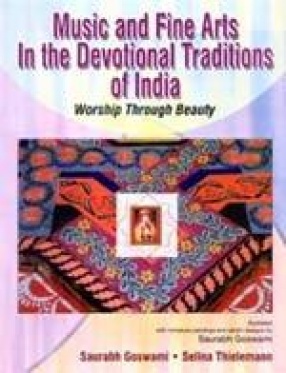
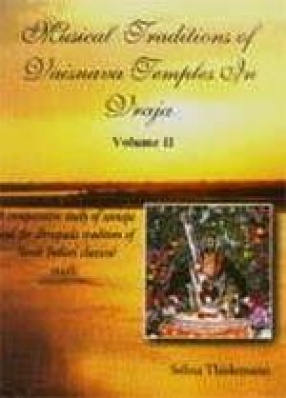
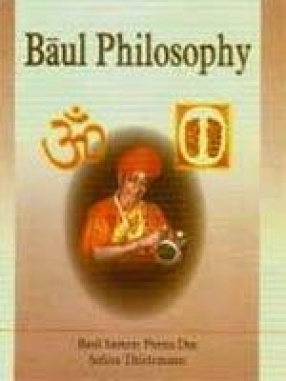
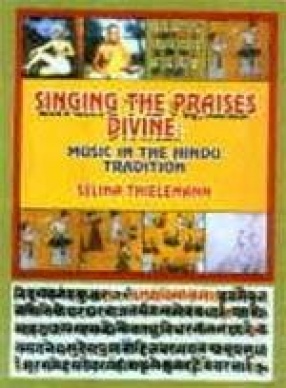
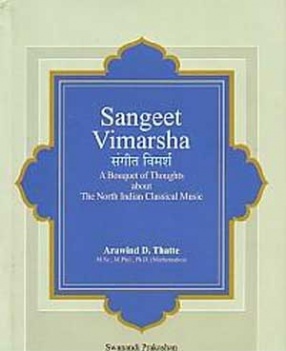
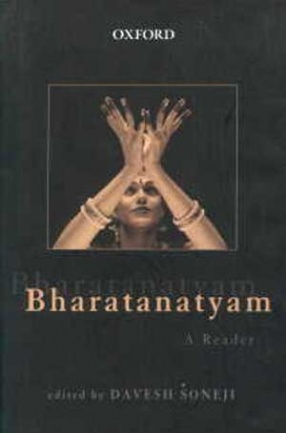
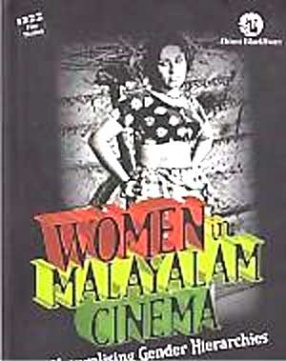
There are no reviews yet.